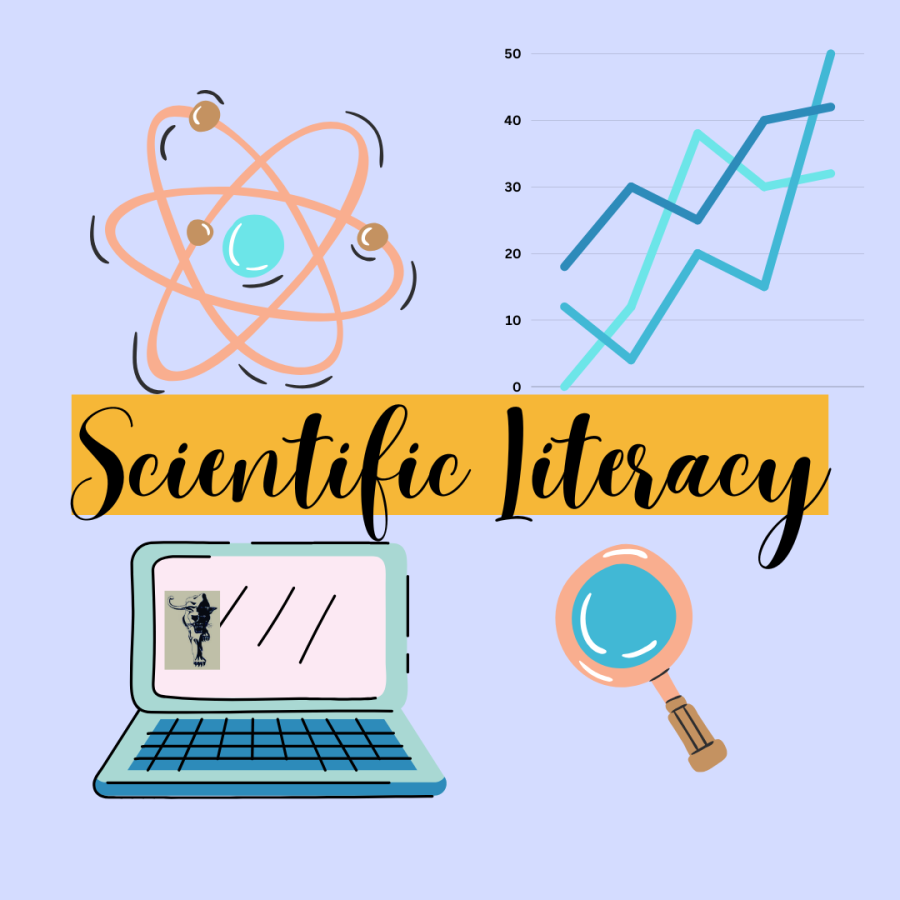Students advocate for science literacy
Scientific Literacy is very important– pay close attention in science classes!
What is science literacy? What does it mean to Wilsonville High School and how much importance do we put into it? How much importance should we put into it?
Ms. Kilpatrick, Chemistry and AP Chemistry teacher, defines science literacy as “young people and adults being able to consume media and be discerning about [its] credibility.” Currently, a lot of our science classes do a “pretty good job of presenting … skills and opportunities for students to look at things like data sets, graphical representations, and models” and make conclusions based on them.
Ms. Kilpatrick would “like to include more current events,” such as “nuclear power plants” during the nuclear chemistry unit. However, the vast but basic scientific knowledge, accumulated over centuries, must be covered first, which makes it difficult to touch upon current scientific advancements in depth.
Science literacy is important for, well, scientists, as the term implies. But even if you’re not obsessed with molecular interactions, gravitational constants, or juncos’ evolution, you’ll still have to predict and make decisions based on data. To be scientifically literate is to ask questions about phenomena and connect the dots.
Ms. Danielle Schroeder, the WLWV ISEF coordinator, says that science literacy allows you to “walk away with a lens that allows you to be more discerning about information that you read in the future, regardless of whether it’s scientific.” Ms. Schroeder emphasizes the importance of having a scientifically literate background, as it helps in much more than the pure sciences themselves. Through a science fair project’s process, you are trained to become “a better informed reader and digester of information, and therefore a disseminator of information.”
Science literacy helps you think analytically, critically, and a bit cynically. Support your reasoning with data, and consider the validity of a statement. If you pay attention in classes, you might even learn a few things about how the world works.
Maxim Wu, senior, enjoyed taking AP Physics as a sophomore. “AP Physics made me apply a lot of mathematical knowledge to solve real life problems. I was able to visualize things like parabolas and circles.” By knowing more about the physical workings of the world, one is more equipped to predict and “analyze objects in motion.”
That’s what science literacy is truly about. Not a F=m*a worksheet or cramming vocabulary for an exam, but learning how to look at a problem or published statement and say, “I know what that is!” Can you do that yet?
Senior Rachel Lords, is taking Forensics this year. She has interests in the artistic fields. “I think [science literacy] is introduced pretty well in the school… [and] we see a lot of graphs that we need to interpret, but I think that sometimes we don’t always understand what we’re looking at. We know how to interpret the numbers, not the information.” Lords says that mathematics does a better job of explaining how to get to an answer: “It’s more of a conclusive learning from the graph versus just looking at it.”
Ms. Asher, an English teacher, believes strongly in literacy and claims there is no reason to distinguish the different types of literacy. “Literacy is the ability to read the world: sometimes through stories and literature, sometimes through scientific theses, sometimes through mathematical symbols.” Analyzing and deciphering works are very important skills, she says, and that if we want to “continue to protect our world… [an emphasis on] science literacy is incredibly important.”
Wilsonville High School “does a solid job at improving science literacy,” said Wu. “We have virtually every AP Science class available, and ISEF.” Many of our alumni walk away with a deeper understanding of deciphering data, and that goes to show the success of our school’s science department.
In English, you learn to read, write, and present your thoughts. A lack of English workings may lead to fatal misconceptions. In this modern world, having knowledge about how the world works, from a scientific perspective, is just as important.










